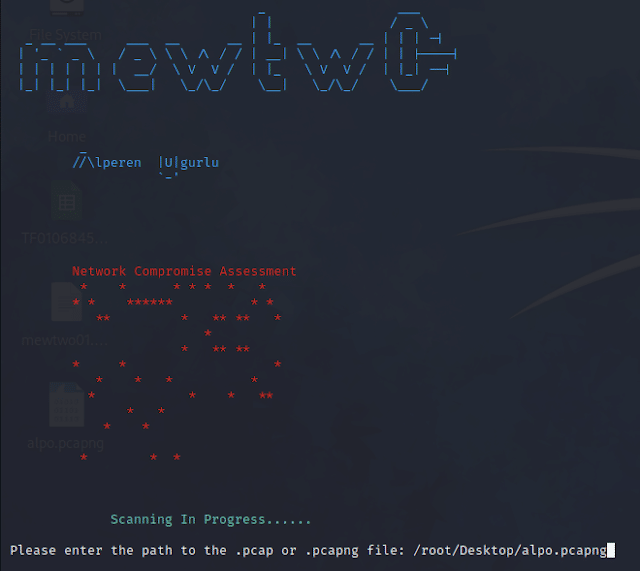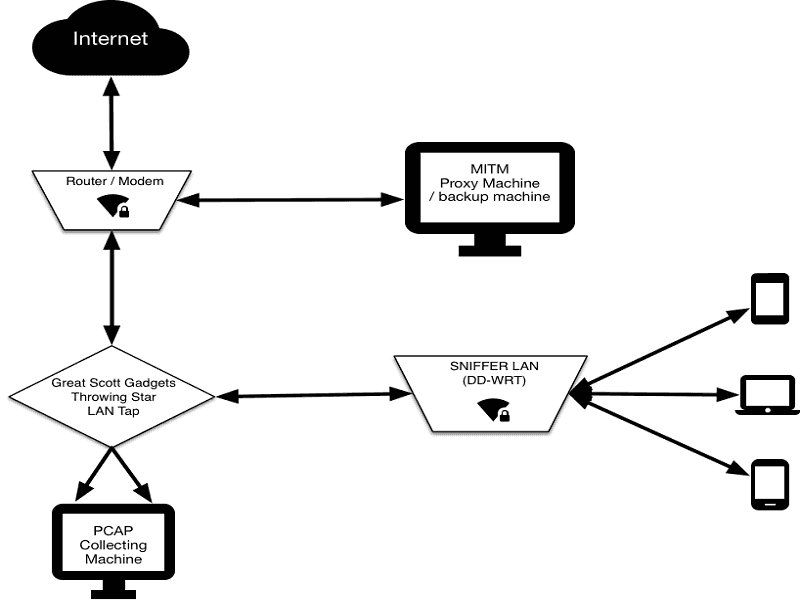This Python script utilises Wireshark or TCPdump to analyse network traffic stored in a specified .pcap or .pcapng file. The objective is to detect potential malicious activities and attacks. The script covers a range of suspicious network behaviors, including: DNS Tunneling SSH Tunneling TCP Session Hijacking SMB Attack SMTP or …
Read More »Change IP address in packet capture file (faking IP)
I'm sure you bumped into situations where you needed to fake IP address in a capture file. This maybe required when you're trying to send the capture file to someone that you don't really share your real IP's with or you just want to change cause you can. If you've tried this and looked around the interwebs, you'd surely know that there's not many guides available and most people would just tell casually "just use sed" or use "WireEdit" and pay some fees for their license. Now, both works but I just got pissed off in a particular situation where sed wasn't an options (the file was literally few GB's in size and most text editors would just freeze) and to make things worse, I needed to filter a lot of info and only keep source and destination IP addresses in there for privacy's sake. Yeah, that means removing all those noises like DNS, UDP, Broadcast, Cisco ARP, Broadcast, MDNS (yes, that too), SSDP ... yes, pretty much anything except TCP/UDP, HTTP and TLS trarffic between my server and the destination server. So, in summary I had to filter all of these noises and change IP address in packet capture file to hide source IP address, this is similar to faking IP address in packet captures. You can also use other tools to do it on the fly but they require more setup and all I just wanted to do is to hide my source IP.
Read More »Publicly Available Tools Seen in Cyber Incidents Worldwide
Remote Access Trojan: JBiFrost First observed in May 2015, the JBiFrost RAT is a variant of the Adwind RAT, with roots stretching back to the Frutas RAT from 2012. A RAT is a program that, once installed on a victim’s machine, allows remote administrative control. In a malicious context, it …
Read More »Troubleshooting Wireless Drivers in Kali Linux
Troubleshooting Wireless Drivers Troubleshooting wireless driver issues in Kali Linux can be a frustrating experience if you don’t know what to look for. This article is meant to be used as a general guideline to better help you find the information you need to solve your wireless issues. The most …
Read More »Create MITM Test Environment using Snifflab
Snifflab is a technical test environment for capturing and decrypting WiFi data transmissions. Snifflab creates a WiFi hotspot that is continually collecting all the packets sent over it. All connected clients’ HTTPS communications are subjected to a “Man-in-the-middle” attack, whereby they can later be decrypted for analysis. This article presents …
Read More » blackMORE Ops Learn one trick a day ….
blackMORE Ops Learn one trick a day ….



